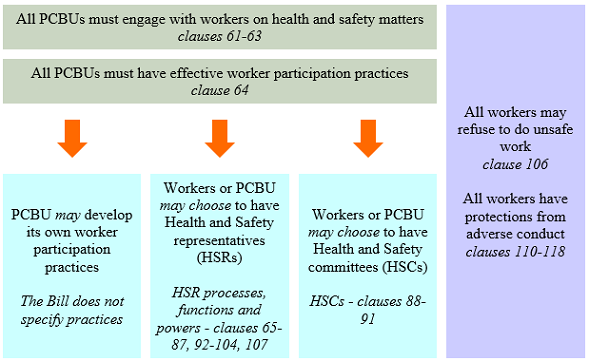As you are no doubt aware, once again, the Health and Safety Reform Bill has been delayed, with the Select Committee now due to report back on 24 July 2015. Rumours are swirling with regard to the reasons for the delay, and speculation about a possible split in caucus with regard to the ‘workability’ of the current Bill. Minister for Workplace Relations and Safety, Michael Woodhouse has stated that the government’s priority is to the get the legislation right, and he makes “no apologies for ensuring we take the time we need to land this reform in the right place”. Similarly, Prime Minister John Key has stated that “We are very concerned about making sure the legislation can be implemented by the vast array of businesses across New Zealand”.
By all accounts, the issue seems to be small business. Union leaders have suggested that the delay is due to the government watering down the requirements for employee engagement, and possibly excluding SMEs from the requirement to have an employee health and safety representative. If so, that would lessen the obligation from what it is currently.
In a recent speech to the International Labour Organisation in Geneva, CTU General Counsel, Jeff Sissons, speculated on the likely changes, disapproved of any move to exempt SMEs, and noted that: “30 percent of workers in New Zealand work in SMEs and their safety is as important as workers in large companies. We understand the pressures on SMEs but they need more support not less regulation”.
Of course, everyone is in the same holding pattern, and as John Key helpfully commented: “You will just have to wait and see.”
In the meantime, and given that the new legislation doesn’t look likely to come into force until the end of this year or the start of next, it is timely to remind ourselves of the employee participation requirements.
Current law:
Employers have a general duty to involve employees in health and safety matters, and provide “reasonable opportunities” for employees to participate in processes for improving health and safety in the workplace. “Reasonable opportunities” take into account various matters, including the number of employees, nature of the work and employment arrangements, how hazardous the work is, and the willingness of employees and unions to develop a participation system.
Employers must have an employee participation system if it has 30 or more employees, or if an employee requests it. Employees, any unions involved, and employers are supposed to cooperate to decide on an appropriate employee participation system. The system must have a process for reviewing the system, but otherwise the details of the system are left to the parties to decide. Schedule 1A to the Act contains examples of things that the parties might like to include in their system, including electing health and safety representatives and processes for cooperation.
If the parties can’t agree on a system, there is a ‘default’ system in Schedule 1A, which requires the employees and unions to elect at least 1, and up to 5, health and safety representatives. Health and safety representatives must be allowed up to 2 days’ paid leave each year, to attend approved health and safety training. Trained health and safety representatives have the power to issue hazard notices where an employer has failed or refused to deal with an identified hazard.
The Reform Bill (as currently drafted):
The Bill does not specify what type of worker participation practices or processes, a PCBU (Person Conducting a Business or Undertaking) must have. Remember that under the Bill, “workers” include employees, contractors, subcontractors – anyone who is doing work for the PCBU.
WorkSafe NZ’s website sets out the following table, by way of summary:

According to WorkSafe, trained Health and Safety representatives are to have given greater power, and the employer/PCBU is obliged to support them in their role. Similarly, if the workers choose to form a Health and Safety Committee, then the PCBU must support the operation of this Committee.
At the present time, the requirement is non-specific. In its preliminary information about the Reform Bill, WorkSafe states:
“Depending what suits its workplace best, a PCBU could comply with this duty by having HSRs or a HSC – or both. Or they might have neither and rely on more informal practices instead. These might include regular toolbox talks, having health and safety as a regular agenda item at team meetings, or another feedback mechanism so staff have a clear way of raising any health and safety concerns with the PCBU. Informal practices like this may well be enough for smaller or low-risk businesses.”
However in the current Bill, if a worker requests the election of 1 or more Health and Safety Representatives, the PCBU must determine and establish ‘work groups’ which will in turn determine the number of HSRs that are necessary.
Apparently, this is the part that is under further scrutiny from Select Committee. In the words of John Key, let’s “wait and see”. We’ll keep you posted on further developments.
 Our German Desk
Our German Desk


